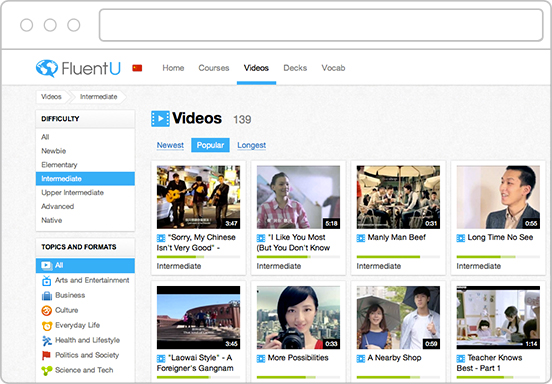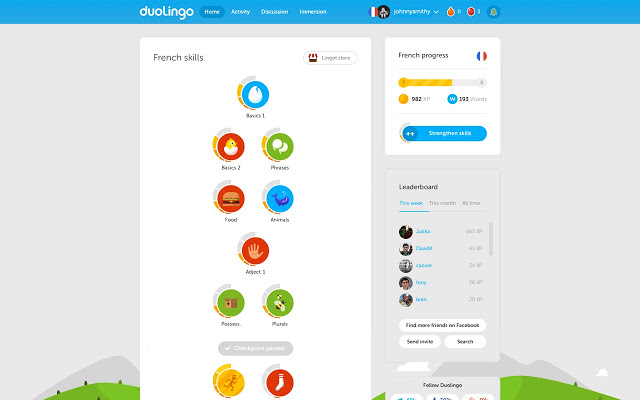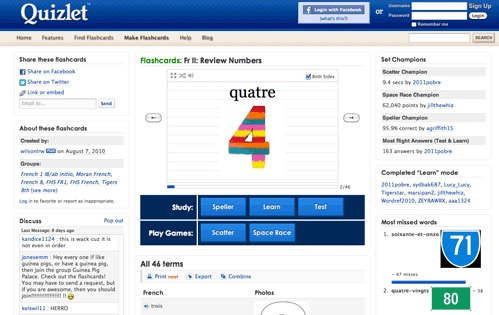Digital language learning platforms on demand
Learning a new language has never been this accessible thanks to a myriad of digital learning platforms available out there. From CNN’s business English to RosettaStones, the number and profile of players in the market have also expanded. A report suggested that revenues from online English language learning services had already hit US$863.1 million in Asia back in 2013. The number is projected to nearly double by 2018.
Driving force behind the cutting-edge language learning tools
Despite the thousands of digital and nondigital tools available in the market, it is not so easy to find the right one. But many of the recent available online learning websites and apps seem to share some latest features. According to a recent report, the global online language learning market gives an insight into such digital trends – Prevalence of cloud services, outsourcing of services and – last but not least – advanced technology (read more at Technaviao) – that would likely to change the landscape of the education market from 2016 to 2020 (via Technaviao).
Technology provides a way much easier access to the global hub of knowledge, virtual classrooms and learning resources. And the emerging disruptive technology provides us with personalised and user-friendly online platform that facilitates a more efficient learning environment.
So how does a learner go about to pick the most apposite learning tool that feeds his or her unique needs and levels?

Unlike the old style textbook learning, FluentU wants learners to learn new languages through short visual stories, ie., movie trailers, news, music videos, inspiring talks and so on (via). The website’s sophisticated data-driven technology will monitor and track a learner’s learning activities to offer a completely personalised learning experience. In fact, it is said that FluentU is used in schools as this turns out to be more engaging and effective by ‘exposing students to authentic, real-life content’.
- Duolingo

If you’re mobile game mania, perhaps you’d also find Duolingo more suitable to your learning process. Before you start, the app/website asks you to set up a goal first; and then sets up an everyday reminder based on your personal goal.
When learning a new language is a lot like playing a light-hearted game, it suddenly doesn’t seem such a pain. As you pass a level, you then collect virtual currency which can be used on their virtual store to purchase stuff like ‘Streak Freeze’ (which allows your streak to remain in place for one full day of inactivity. As you advance, you’re also entitled to a variety of features like participating in discussions with your peers. But this app is definitely suitable for those who want to learn a new lingo while commuting, rather than for advanced learners.
- Ligual.ly
On the other hand, Ligual.ly offers more levels to choose from. Focused essentially for improving reading and vocabulary range, this platform is more suited for those with a certain level of the language and want to make significant progress. With a variety of topics to pick from, users are presented selected recently-published articles according to his or her preferences. ‘What makes the reading material in the Feed personalised is the fact that no two users will receive the same reading suggestions within a given category.’ As the user collects words in his or her flashcards by simply highlighting it, the definition, pronunciation will also pop up alongside. And based on the list, the system then will prepare further materials and practices to strengthen their weak points. Need to translate the whole text? You can save time from opening another window for Google Translate. Lingual.ly does it for you on the same screen!

(Image via edshelf)
There are also teacher-oriented learning platforms such as Quizlet, a ‘peer-powered learning network’, as Matthew Glotzbach, CEO of Quizlet has explained. Just like Youtube, Quizlet purely consists of user-generated content. It helps educators arrange and organise their classes while tracking students’ progress and activities as well. But it doesn’t stop there; the company also released Quizlet Live, a ree learning game for classroom use.
What do you think?
Appnova is a digital agency specialising in web design, UX, e-commerce, branding, digital marketing and social media.
Keep following us on Twitter @appnova and “like” us on Facebook for useful news and tasteful digressions about geeky stuff.








0.Comments